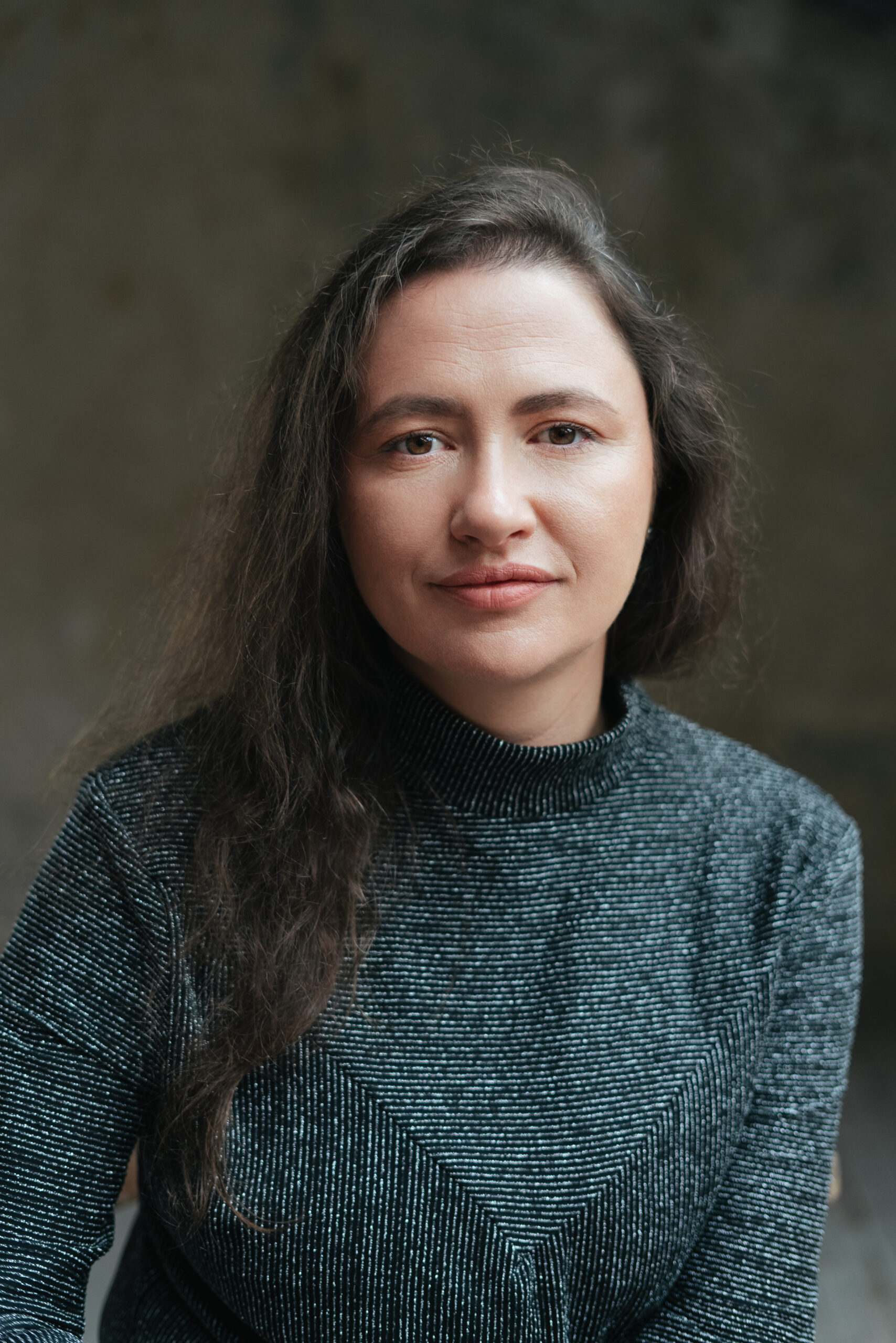Rūta Vitkauskaitė is a composer, working in concert music and beyond. Her scores have been awarded numerous prizes and performed at Apeldoorn, Sound (UK), Gaudeamus, Operadagen (NL), Nordbeg, Halland (SE), Gaida, NOA (LT), Q-O2 (BE), SUSA (DK), broadcasted on BBC Radio 3, Deutschlandradio Kultur, Lithuanian Radio and TV. Outstanding musicians, including BBC Singers, Manchester Collective, Ensemble 360, Ligeti Quartet, Kaleidoscope, Apartment House, LNSO, Martynas Levickis, performed her music.
Part of her practice is collaborative and inter-disciplinary projects: her opera for blind-folded audience, Confessions (Spatial Opera Company), was awarded Golden Stage Cross and toured across EU with over 50 shows to date.
Ruta has a PhD in Composition from the Royal Academy of Music in London, was a recipient of a prestigious Royal Philharmonic Society composers’ scheme, and is published by Composers’ Edition. She is a multiple winner of Lithuanian Composers’ Union Best Composition of the Year, and her current research, Modern Chants, on onomatopoeic words in ancient folk music, was shortlisted for Scottish Awards for New Music 2023.
Rūta is a passionate advocate for new music. She initiated CoMA, Contemporary Music for All – Glasgow, is a Lecturer in Composition at the Royal Conservatoire of Scotland, and a Deputy Director at Sound Festival (Aberdeen) with particular focus on Equality, Diversity and Inclusion.

“In her music, Ruta Vitkauskaite strives to grasp the fundamental matters, the primeval universality, as if looking for the ‘philosophical stone’ of the mythic musical substance. Her works show a highly powerful basis of irrational intuition, hard to describe soundscapes resembling archetypes – the shapes of the collective unconscious. The composer often combines the language of contemporary academic music, elements of ethnic and ritual music of different cultures (African tribes, shamans of the North, Georgians, Arabs and Jews, or the Lithuanian laments), or the sounds of experimental electronics. Her eccentric works often resemble natural forces, seemingly unorganised and chaotic formations, sticking together into a highly dynamic, vital and unpredictable whole, always generating an active emotion.” – from ‘New [Re]Generation of Lithuanian Contemporary Music’ by Asta Pakarklyte, 2009 www.mic.lt/